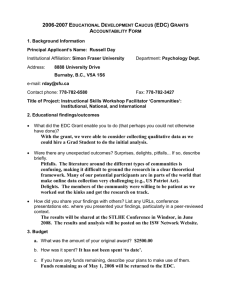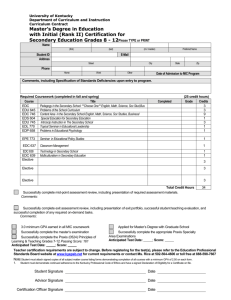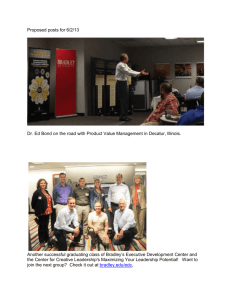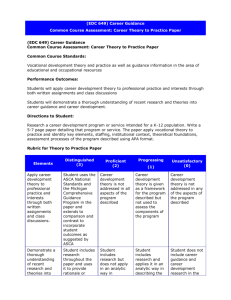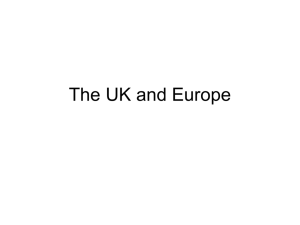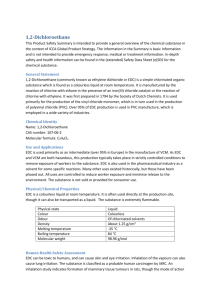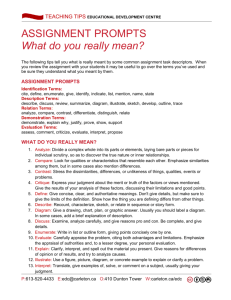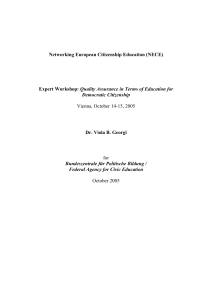Document 12630269
advertisement
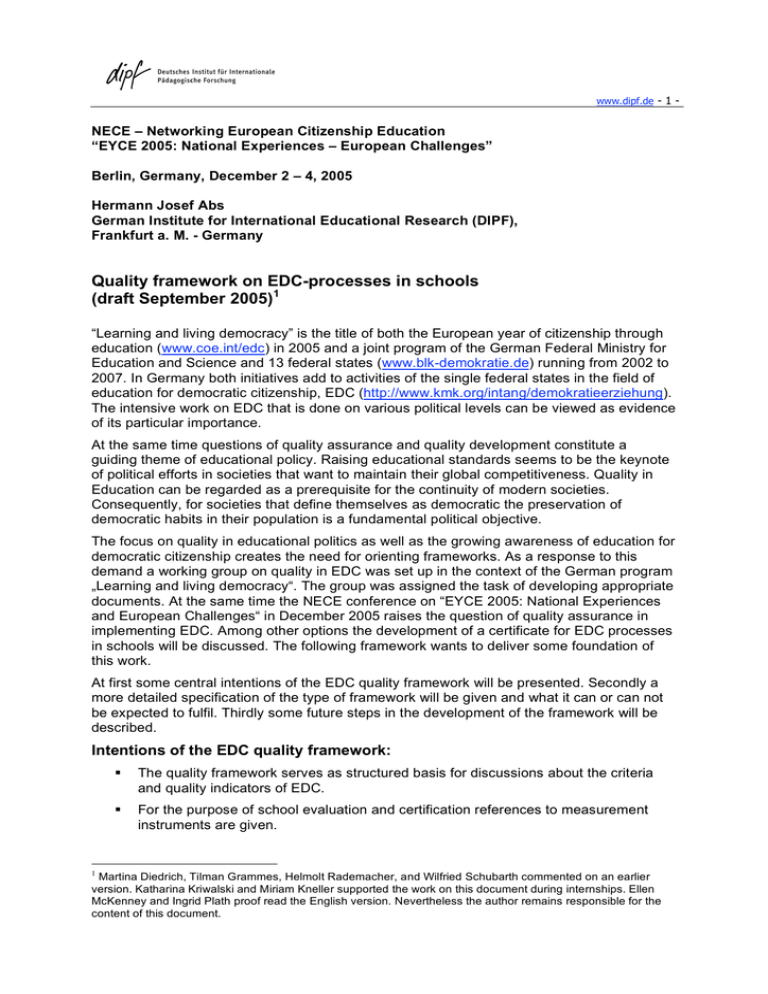
www.dipf.de - 1 - NECE – Networking European Citizenship Education “EYCE 2005: National Experiences – European Challenges” Berlin, Germany, December 2 – 4, 2005 Hermann Josef Abs German Institute for International Educational Research (DIPF), Frankfurt a. M. - Germany Quality framework on EDC-processes in schools (draft September 2005)1 “Learning and living democracy” is the title of both the European year of citizenship through education (www.coe.int/edc) in 2005 and a joint program of the German Federal Ministry for Education and Science and 13 federal states (www.blk-demokratie.de) running from 2002 to 2007. In Germany both initiatives add to activities of the single federal states in the field of education for democratic citizenship, EDC (http://www.kmk.org/intang/demokratieerziehung). The intensive work on EDC that is done on various political levels can be viewed as evidence of its particular importance. At the same time questions of quality assurance and quality development constitute a guiding theme of educational policy. Raising educational standards seems to be the keynote of political efforts in societies that want to maintain their global competitiveness. Quality in Education can be regarded as a prerequisite for the continuity of modern societies. Consequently, for societies that define themselves as democratic the preservation of democratic habits in their population is a fundamental political objective. The focus on quality in educational politics as well as the growing awareness of education for democratic citizenship creates the need for orienting frameworks. As a response to this demand a working group on quality in EDC was set up in the context of the German program „Learning and living democracy“. The group was assigned the task of developing appropriate documents. At the same time the NECE conference on “EYCE 2005: National Experiences and European Challenges“ in December 2005 raises the question of quality assurance in implementing EDC. Among other options the development of a certificate for EDC processes in schools will be discussed. The following framework wants to deliver some foundation of this work. At first some central intentions of the EDC quality framework will be presented. Secondly a more detailed specification of the type of framework will be given and what it can or can not be expected to fulfil. Thirdly some future steps in the development of the framework will be described. Intentions of the EDC quality framework: 1 The quality framework serves as structured basis for discussions about the criteria and quality indicators of EDC. For the purpose of school evaluation and certification references to measurement instruments are given. Martina Diedrich, Tilman Grammes, Helmolt Rademacher, and Wilfried Schubarth commented on an earlier version. Katharina Kriwalski and Miriam Kneller supported the work on this document during internships. Ellen McKenney and Ingrid Plath proof read the English version. Nevertheless the author remains responsible for the content of this document. www.dipf.de - 2 - The relationship of EDC practices to criteria is made transparent. (Thus in future examples of best practices from the program „Learning and living democracy“ can be linked to the framework in order to illustrate criteria.) Specification of framework type: The framework draft is normative in character. Even if empirical evidence on the effects of some EDC-practices is available, this draft gives no information on the extent to which certain practices contribute to EDC competencies of students. This question is for example dealt with in the IEA-Civic Education Study (Torney-Purta et al. 2001). The framework can be looked on as a synopsis of criteria. The process of implementing these criteria in the context of school development or school evaluation or certification is not indicated. The question of school development planning is for example dealt with in a current publication of the Council of Europe (Birzea et al. 2005). For the question of evaluation see Abs & Klieme (2005), and for certification see Abs (2005b). The draft presented here refers to teaching in general and schools as institutions. Content and methodology of the subject civic education (or: political studies) are only touched on if they contribute to the reflection on EDC practices in school. A more extensive integration of content (political literacy) into an overall conception can be found in current publications of the European commission (2005, 10) and of Himmelmann (2005). A stronger focus on the subject can be found in Behrmann, Grammes & Reinhardt (2004) and the German Society for Political Education of Youth and Adults (GPJE 2004). This framework concentrates on the process level of teaching and schooling. The competencies of students that should be developed and the standards to measure these are not discussed. Klieme et al. (2004) and Abs (2005a) analyse this distinctions. Preparatory work on the development of empirically based standards for EDC competencies can be found in the context of the IEA-Studies (Torney-Purta et al. 2001) and in the Evaluation of the German program “Learning and living democracy” (Diedrich et. al. 2004). The description of output criteria on the homepage of the British Qualification and Curriculum Authority (http://www.qca.org.uk/2929.html) provides a first orientation regarding work on curriculum objectives. Future steps in the development of this framework: Monitoring of contents with respect to aspects that are only relevant to school development in general, but not necessarily from an EDC perspective Checking for EDC contents that have not been included yet Discussing the logic of criteria, quality indicators, measurement options and practices. Searching for additional measurement options Developing conceptions of how to use and implement the framework in various contexts (like school development, evaluation, certification etc.)
